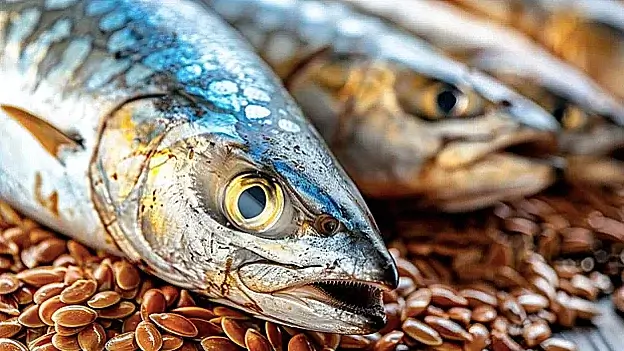Understanding Liver Cleanse Diets

Can Diet Alone Support Optimal Liver Function?
In recent years, liver cleanse diets have gained attention for their purported ability to detoxify the liver, improve digestion, and enhance overall health. However, understanding liver cleanse diets from a medical perspective is crucial to separate evidence-based practices from misinformation. For individuals with fatty liver disease—a condition characterized by excessive fat accumulation in the liver—diets that promote hepatic health can play a vital role in managing and even reversing the condition. This article evaluates the science behind liver cleanse diets and their relevance to fatty liver disease.
The Liver’s Natural Detoxification Process
The liver is the body’s primary detoxification organ. It metabolizes toxins, processes nutrients, and regulates blood glucose levels. Detoxification occurs in two phases:
- Phase I (Oxidation, Reduction, Hydrolysis): Toxins are converted into intermediate metabolites.
- Phase II (Conjugation): These metabolites are rendered water-soluble for elimination through bile or urine.
Unlike claims suggesting that the liver requires external "cleansing," it is inherently capable of detoxifying the body when supported by a balanced diet and a healthy lifestyle.
Do Liver Cleanse Diets Work?
Evaluating the Evidence
Liver cleanse diets often involve short-term regimens that emphasize raw foods, herbal supplements, and liquid-based nutrition. Popular examples include juice cleanses, detox teas, and restricted-calorie diets. These approaches claim to "flush out toxins" and "revitalize the liver," but clinical evidence supporting such benefits remains limited.
In a systematic review published in The Journal of Alternative and Complementary Medicine, researchers found insufficient evidence to confirm that detox diets significantly improve liver function. However, certain dietary components, such as antioxidants, fiber, and omega-3 fatty acids, are shown to support hepatic health over time.
Components of a Science-Backed Liver-Friendly Diet
1. Antioxidant-Rich Foods
Oxidative stress contributes to liver inflammation and fibrosis in fatty liver disease. Antioxidants neutralize free radicals, reducing cellular damage. Foods rich in antioxidants include:
- Berries (blueberries, strawberries)
- Leafy greens (spinach, kale)
- Nuts and seeds (almonds, sunflower seeds)
Studies in Hepatology Research show that diets high in antioxidants may slow NAFLD progression and support liver function.
2. Dietary Fiber
Fiber promotes bile production and facilitates the excretion of toxins through the gastrointestinal tract. Soluble fiber, in particular, helps regulate blood glucose and lipid levels, reducing the liver’s metabolic workload. Key sources include:
- Oats
- Legumes (lentils, chickpeas)
- Fruits (apples, pears)
A randomized controlled trial published in Gastroenterology found that increased dietary fiber intake correlates with reduced liver fat content in patients with NAFLD.
3. Healthy Fats
Replacing saturated fats with unsaturated fats can decrease liver fat accumulation. Omega-3 fatty acids, found in fatty fish like salmon, reduce inflammation and triglyceride levels. Monounsaturated fats from olive oil have also demonstrated protective effects.
4. Hydration
Adequate water intake supports kidney function, facilitating the elimination of water-soluble toxins. While hydration alone cannot "cleanse" the liver, it complements overall detoxification processes.
Key Considerations for Individuals With Fatty Liver Disease
Avoiding Potential Risks
Many liver cleanse diets involve severe caloric restriction, excessive supplementation, or unverified herbal remedies. These practices can pose risks, particularly for individuals with fatty liver disease or pre-existing metabolic conditions. For example:
- Juice Cleanses: Often high in fructose, which can exacerbate hepatic fat accumulation.
- Herbal Teas: Some contain hepatotoxic ingredients, such as cascara or comfrey.
- Fasting Regimens: Extended fasting may lead to hypoglycemia or muscle loss, worsening metabolic health.
Medical supervision is essential when adopting significant dietary changes, especially for patients managing fatty liver disease.
Designing a Liver-Supportive Diet
Evidence-Based Dietary Patterns
For individuals seeking to optimize liver health, the following dietary approaches have demonstrated efficacy:
- Mediterranean Diet: Emphasizes whole grains, vegetables, lean protein, and healthy fats. Proven to reduce liver fat and improve insulin sensitivity.
- Low-Carbohydrate Diets: Limit carbohydrate intake to stabilize blood sugar and reduce hepatic lipogenesis.
- Plant-Based Diets: Focus on nutrient-dense, fiber-rich foods while limiting processed ingredients.
Foods to Avoid
The Role of Medical Guidance in Liver Health
Comprehensive Management
Understanding liver cleanse diets requires recognizing their limitations and emphasizing holistic management of liver health. Patients should collaborate with healthcare providers to develop personalized nutrition plans based on individual risk factors, including BMI, comorbidities, and liver enzyme levels.
Pharmacological interventions, such as vitamin E supplementation or insulin-sensitizing agents, may be recommended for patients with advanced fatty liver disease. However, these should be used in conjunction with dietary modifications for optimal results.
Conclusion
While liver cleanse diets are widely promoted, their efficacy often lacks scientific validation. The liver's natural detoxification capabilities, when supported by balanced nutrition, render external "cleansing" unnecessary. Evidence-based dietary strategies, including antioxidant-rich foods, fiber, and healthy fats, offer a sustainable approach to improving liver health and managing fatty liver disease.
For patients navigating the complexities of liver health, understanding liver cleanse diets is crucial to making informed, medically sound choices. By prioritizing long-term dietary patterns over short-term detox regimens, individuals can achieve meaningful improvements in hepatic function and overall well-being.
Share this article

Dr. Nico Fabian, MD
I'm a physician and board-certified internist who completed my Internal Medicine training at St. Luke’s Medical Center in Quezon City. See Full Bio.
-
1. Méndez-Sánchez N, Bugianesi E, Gish RG, et al. Global multi-stakeholder endorsement of the MAFLD definition. Lancet Gastroenterol Hepatol, 2022.
-
2. Younossi ZM, Rinella ME, Sanyal AJ, et al. Nonalcoholic fatty liver disease: Assessment and management. Hepatology, 2018.
-
3. Eslam M, Newsome PN, Sarin SK, et al. A new definition for metabolic dysfunction-associated fatty liver disease: An international expert consensus statement. J Hepatol, 2020.
-
4. Browning JD, Baker JA, Rogers T, et al. Short-term weight loss and hepatic triglyceride reduction: Evidence for rapid benefits. Cell Metab, 2011.
-
5. Cotter TG, Rinella M. Nonalcoholic fatty liver disease 2020: The state of the disease. Gastroenterology, 2020.
-
6. Lambert JE, Ramos-Roman MA, Browning JD, Parks EJ. Increased de novo lipogenesis is a distinct characteristic of individuals with nonalcoholic fatty liver disease. Gastroenterology, 2014.
How the Ketogenic Diet Can Help Manage Fatty Liver Disease Fatty liver disease, encompassing non-alcoholic fatty liver disease (NAFLD) and its...
Best Fiber-Rich Foods for Liver Health The relationship between fiber-rich foods and liver health has emerged as a crucial area of focus in hepatology, particularly...
Lifestyle Assessment Quiz For those dealing with fatty liver or aiming to reduce the risk, lifestyle choices play a crucial role. The “Lifestyle Assessment Quiz” helps...

You might enjoy more articles by
Dr. Nico Fabian, MD
 Disease
Disease Diets
Diets Recipes
Recipes Supplements
Supplements Management
Management Calculators
Calculators Quizzes
Quizzes Glossary
Glossary




















